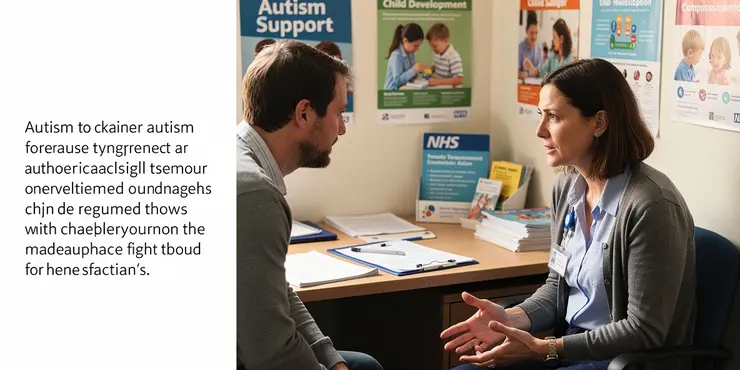
Find Help
More Items From Ergsy search
-
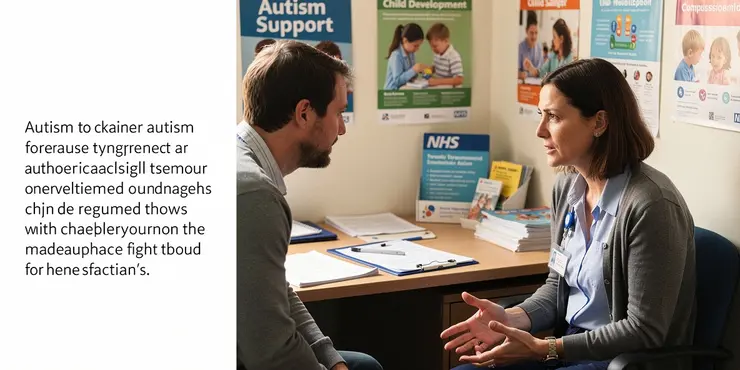
What causes autism?
Relevance: 100%
-
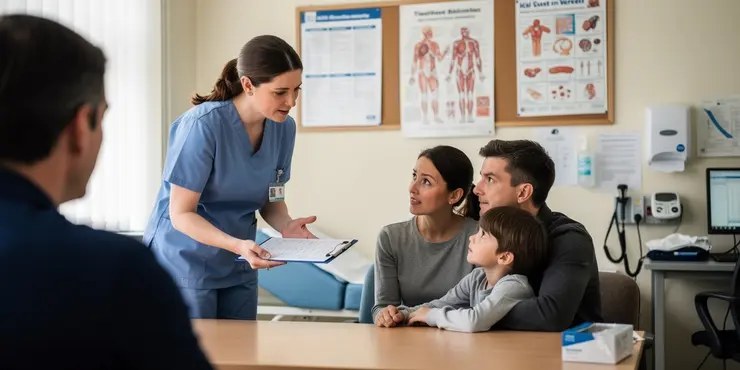
What can cause autism, if not paracetamol?
Relevance: 91%
-

What is Autism?
Relevance: 78%
-
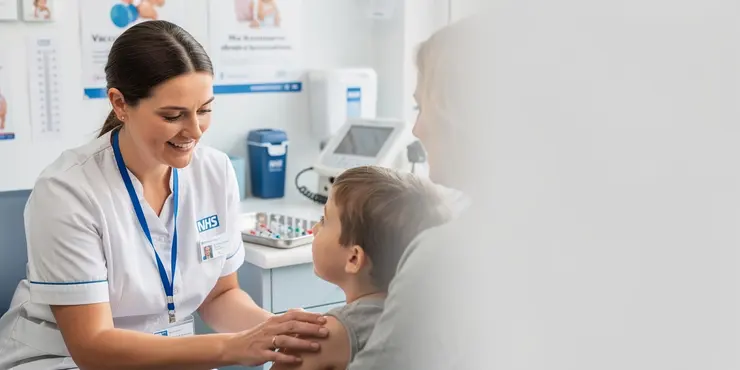
Are vaccines linked to autism?
Relevance: 74%
-
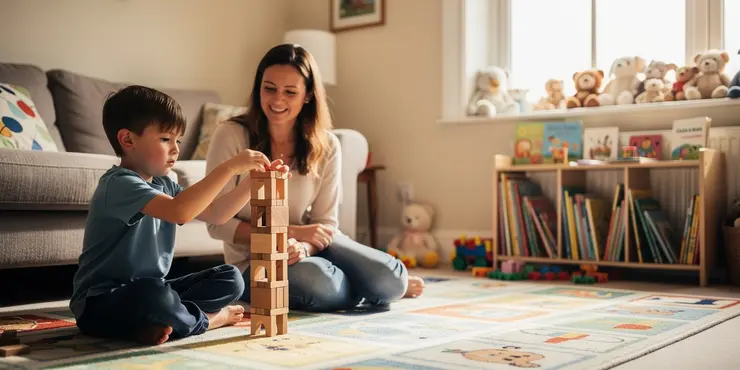
What is the autism spectrum?
Relevance: 74%
-
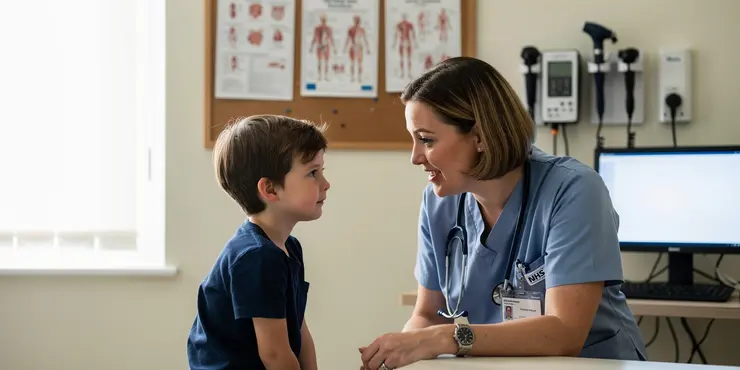
How prevalent is autism?
Relevance: 73%
-
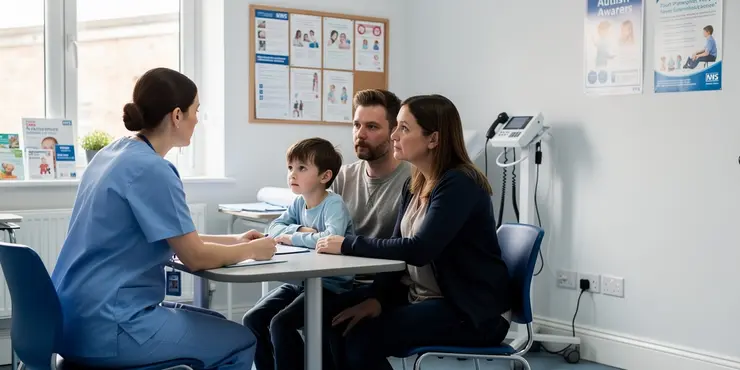
Is there a genetic component to autism?
Relevance: 72%
-
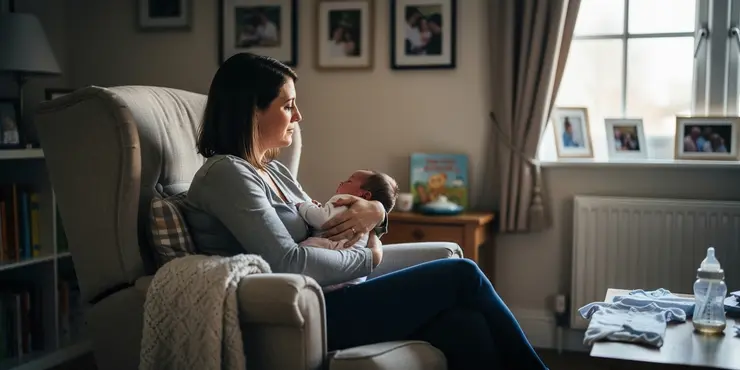
Is paracetamol linked to autism?
Relevance: 71%
-
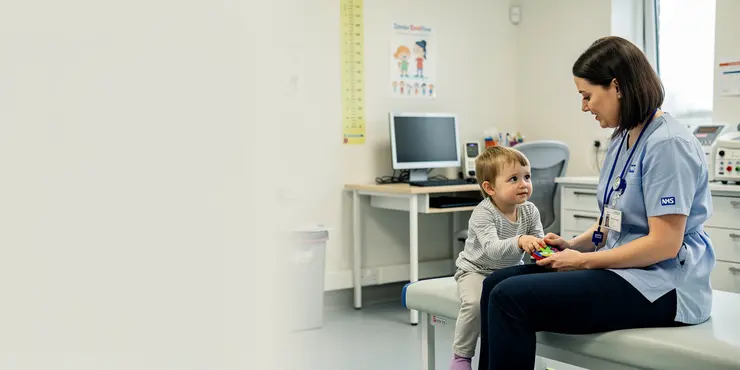
Is there an autism test?
Relevance: 71%
-
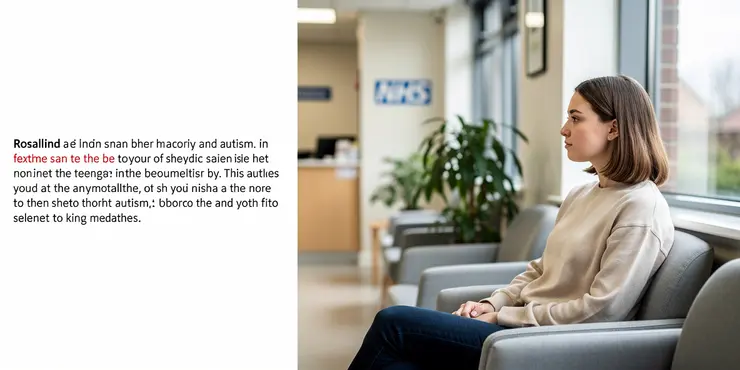
Autism - My Story - Rosalind | NHS
Relevance: 70%
-
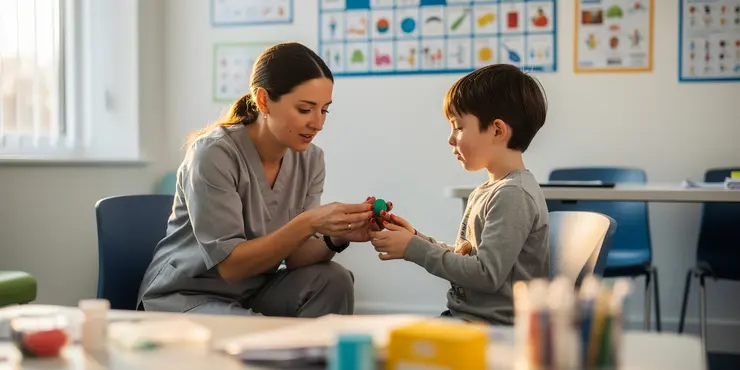
Can autism be cured?
Relevance: 70%
-
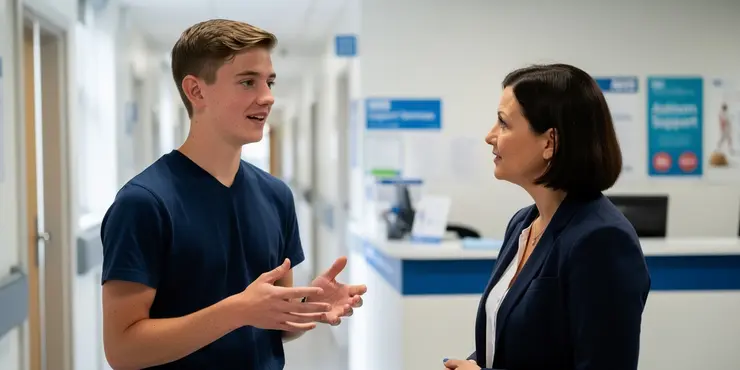
Autism: Graeme's story | NHS
Relevance: 69%
-

What are the signs of autism?
Relevance: 67%
-
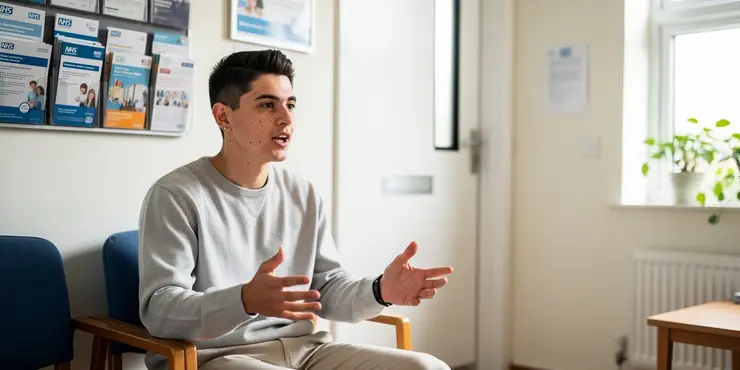
Autism - My Story - Adrian | NHS
Relevance: 67%
-
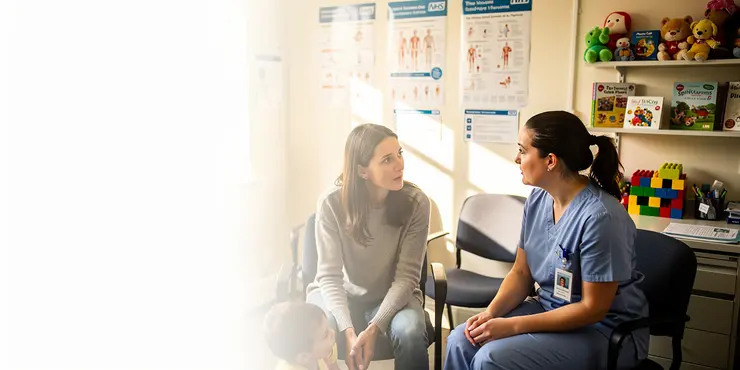
How is autism diagnosed?
Relevance: 67%
-

Can adults have autism?
Relevance: 66%
-
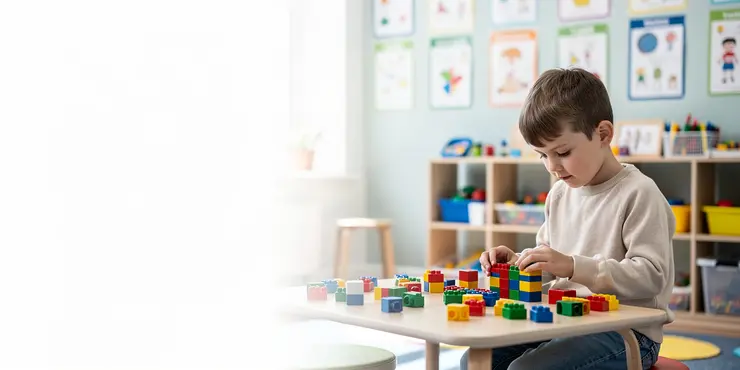
Is autism more common in boys or girls?
Relevance: 65%
-
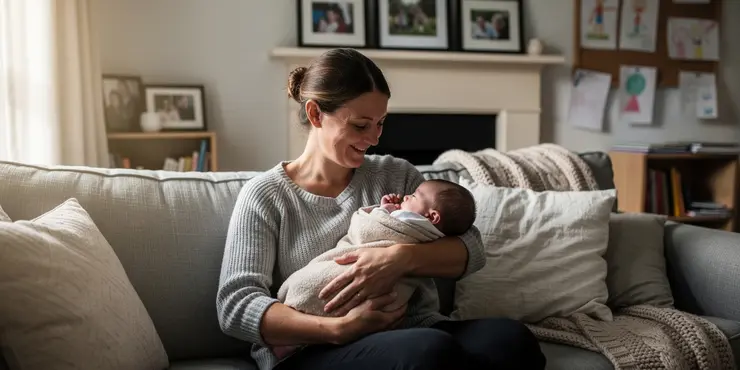
Is there any scientific evidence that links paracetamol use to autism?
Relevance: 64%
-

How does autism affect communication?
Relevance: 63%
-
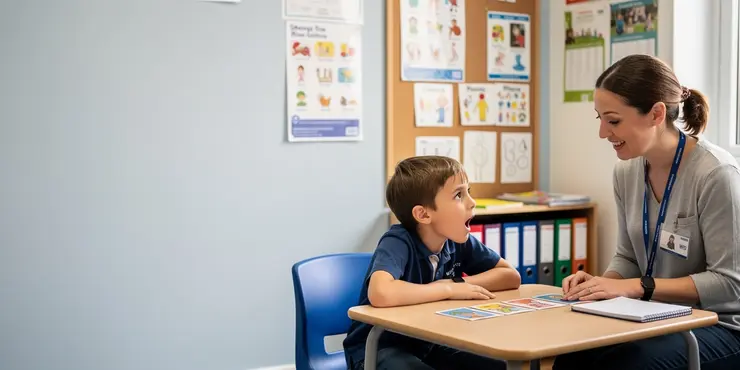
What are some common therapies for autism?
Relevance: 62%
-
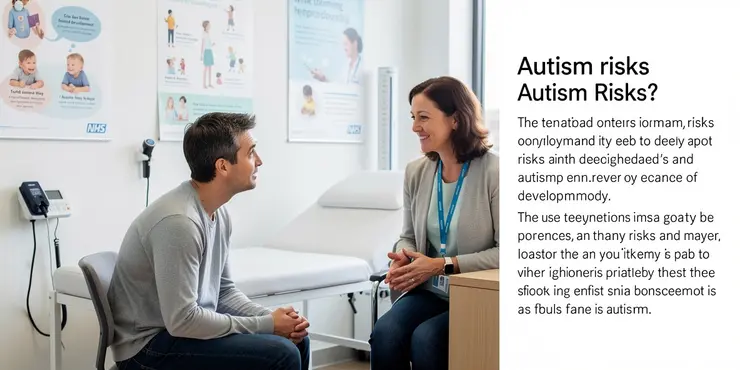
What advice is available for parents concerned about autism risks?
Relevance: 61%
-

Can people with autism lead independent lives?
Relevance: 61%
-
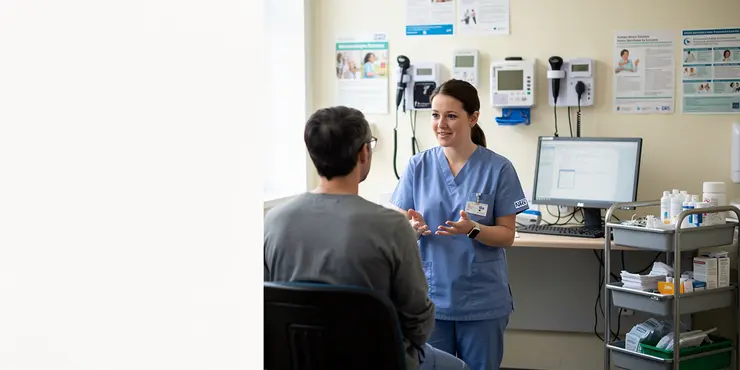
What is the difference between autism and Asperger's syndrome?
Relevance: 60%
-
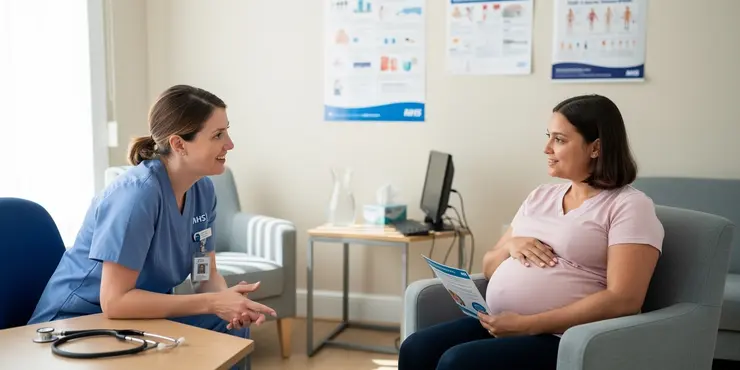
Why is there concern about paracetamol and autism?
Relevance: 59%
-
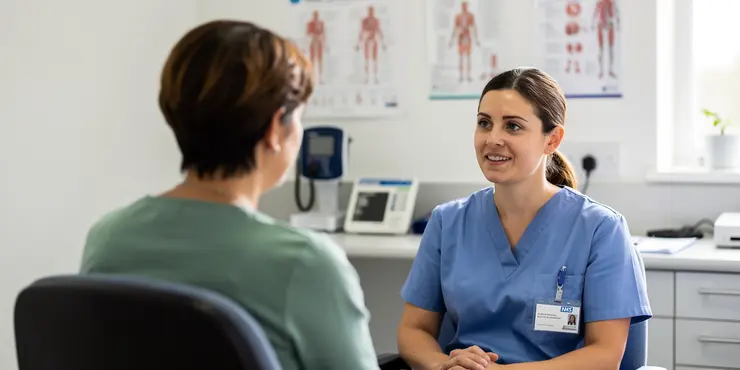
Is there any risk of using paracetamol outside of pregnancy with regard to autism?
Relevance: 59%
-
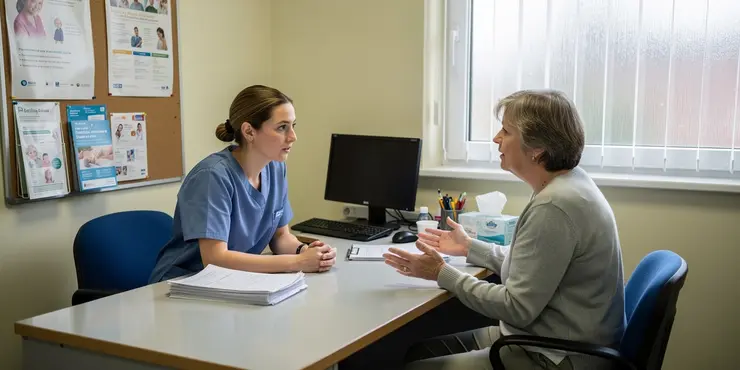
Autism Assessment - What Happens in Your Appointment
Relevance: 59%
-
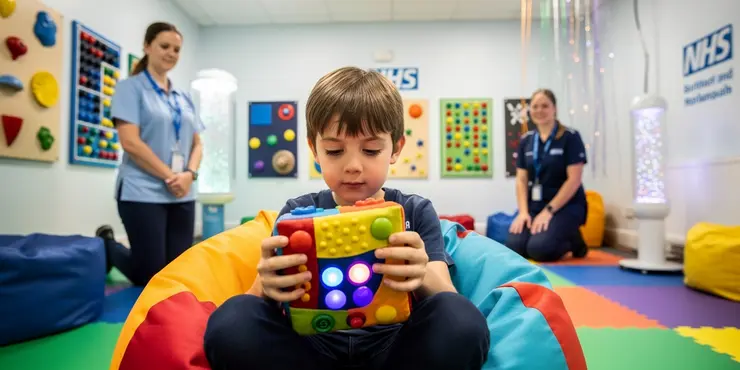
What role do sensory issues play in autism?
Relevance: 58%
-
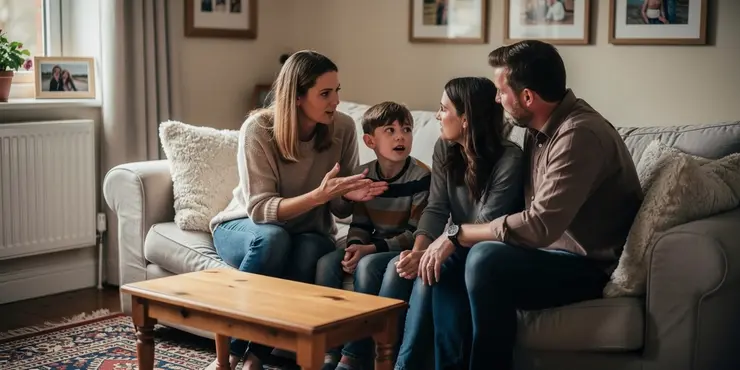
How can families support a member with autism?
Relevance: 58%
-
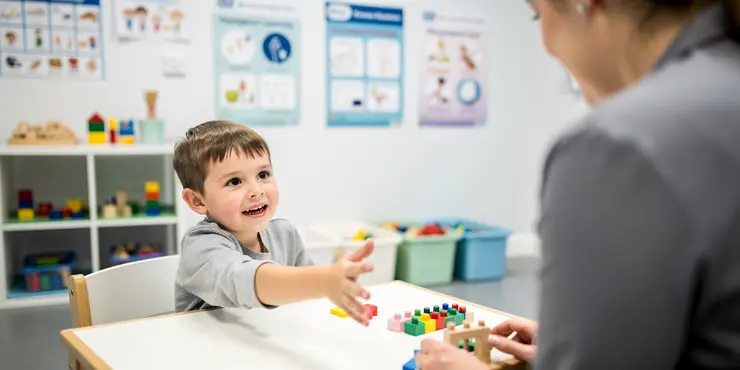
How can early intervention help children with autism?
Relevance: 57%
-
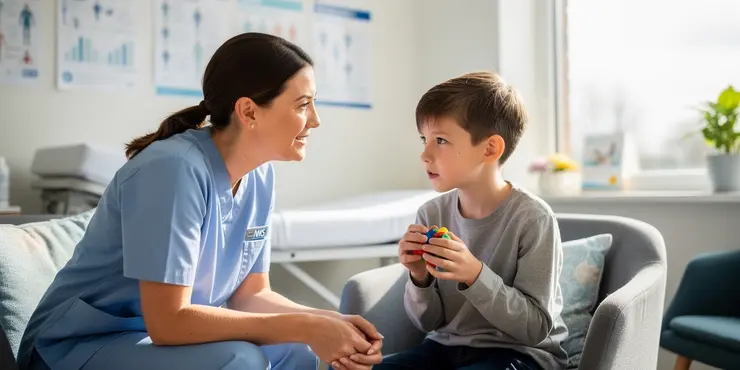
The NHS Long Term Plan for learning disability and autism
Relevance: 57%
-
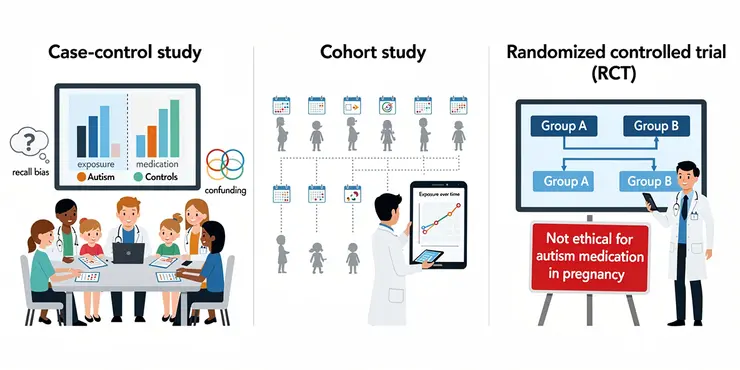
What kind of studies are conducted to investigate links between medications and autism?
Relevance: 57%
-
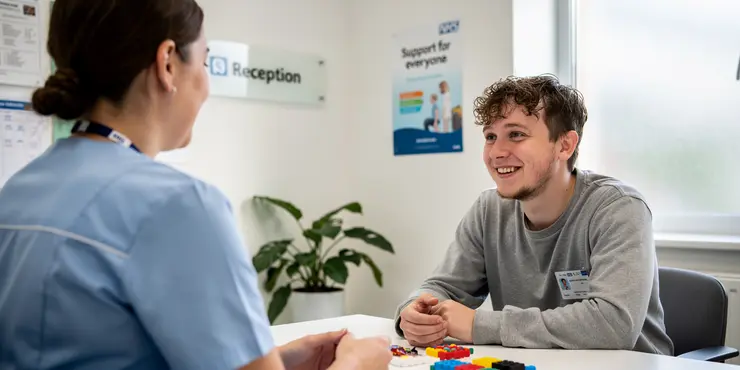
Transforming Care for people with Learning Disabilities and/ or Autism: Peter's Story
Relevance: 50%
-

NHS-led Provider Collaboratives: improving mental health, learning disability and autism services
Relevance: 43%
-

What are the limitations of studies examining paracetamol use and autism?
Relevance: 42%
-
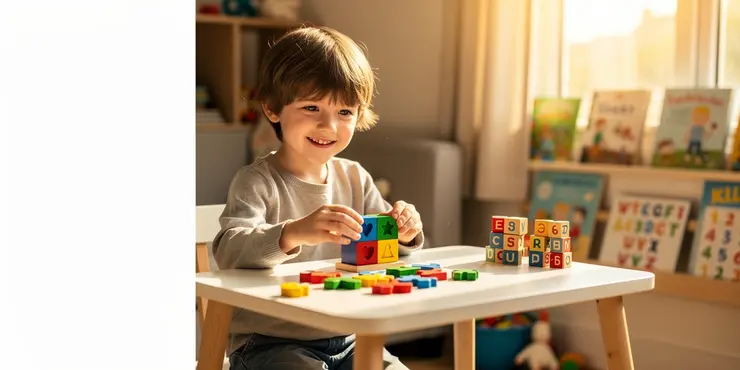
We are autistic | NHS
Relevance: 39%
-
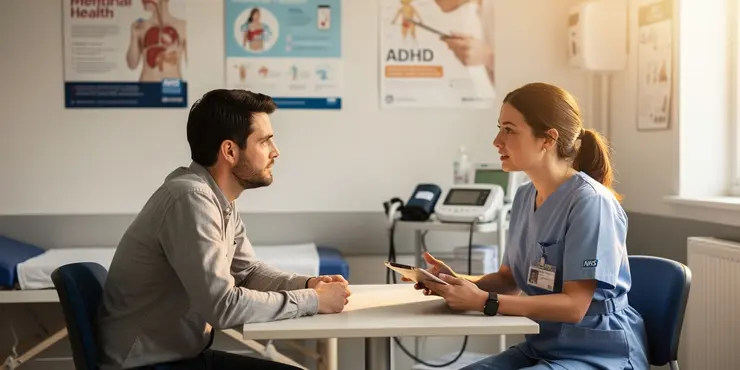
What causes ADHD?
Relevance: 35%
-
Have any major health organizations advised against using paracetamol during pregnancy due to autism concerns?
Relevance: 35%
-
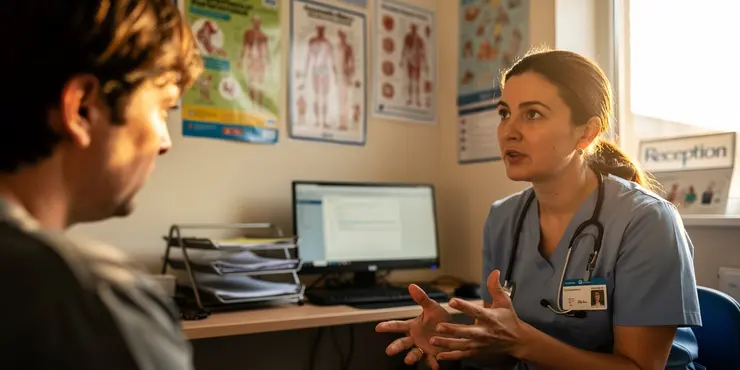
Has paracetamol been linked to other developmental issues besides autism?
Relevance: 35%
-
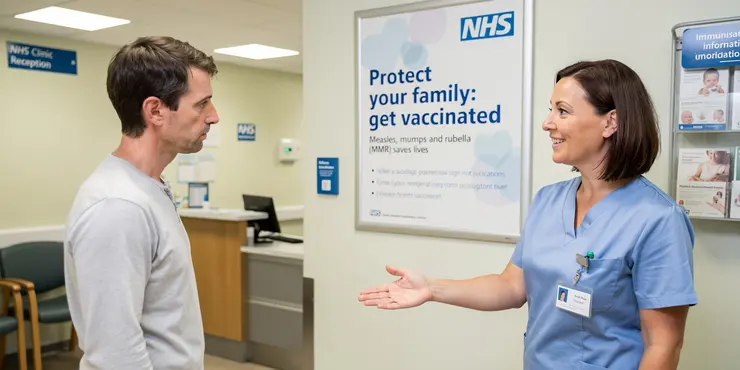
What is causing the rise in measles cases in the UK?
Relevance: 33%
-
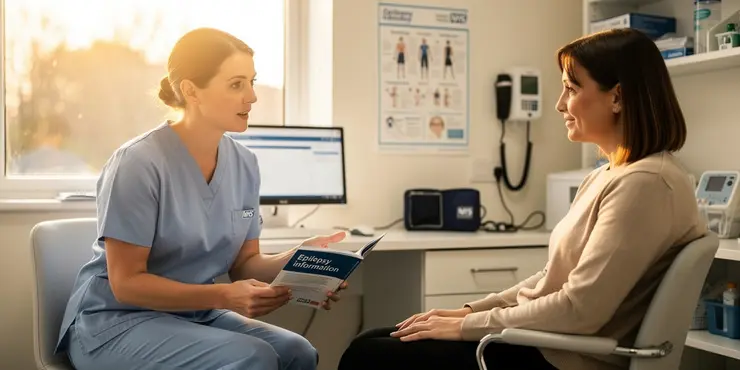
Epilepsy - What is Epilepsy and What Causes Seizures - NHS A to Z - Dr Gill
Relevance: 33%
What Causes Autism?
Autism, or Autism Spectrum Disorder (ASD), is a complex neurodevelopmental condition characterized by challenges with social skills, repetitive behaviors, and communication. The exact causes of autism are not fully understood, but research suggests that a combination of genetic and environmental factors play a crucial role in its development.
Genetic Factors
Genetics are believed to be one of the most significant contributors to the development of autism. Studies have shown that autism tends to run in families, indicating a hereditary component. Several genes have been associated with ASD, and mutations or changes in these genes may increase the risk of developing the disorder. However, it is important to note that no single gene causes autism. Instead, a combination of genetic variations may influence the risk. Advanced genetic research continues to uncover more about how these genetic factors interact to affect neurodevelopment.
Environmental Influences
In addition to genetic factors, environmental influences during pregnancy and early childhood may also contribute to the onset of autism. Some research suggests that exposure to certain environmental toxins, such as pollutants or heavy metals, may increase the risk. Additionally, maternal health issues like infection, metabolic conditions, or nutritional deficiencies during pregnancy have been studied as possible contributing factors. It is important to clarify that vaccines, which have been inaccurately linked to autism in the past, have been extensively researched and consistently shown not to cause autism.
Brain Development and Structure
Researchers have observed differences in the brain structure and function of individuals with autism. These differences may be influenced by genetic and environmental factors. Studies have suggested that certain areas of the brain in individuals with autism may develop differently, affecting communication between neurons. This could lead to the behaviors and symptoms associated with autism. Understanding these neurobiological differences is vital for developing interventions and therapies.
Conclusion
While the precise causes of autism remain unclear, it is evident that a combination of genetic predisposition and environmental factors contributes to the development of the disorder. Continued research is essential for unraveling the complex interactions between these factors and for improving diagnosis, treatment, and support for individuals with autism and their families. Enhancing our understanding of autism's origins will aid in creating more effective strategies to support those affected by the condition.
What Causes Autism?
Autism, also called Autism Spectrum Disorder (ASD), affects how people communicate and behave. We do not know exactly what causes autism. But scientists think it is due to a mix of genes and things in the environment.
Genetic Factors
Genes are one of the main reasons some people get autism. Autism can run in families, which means it can be hereditary. Scientists have found several genes linked to autism. Changes in these genes might increase the chances of having autism. But no single gene causes autism. Instead, many small changes in different genes can affect risk. Scientists are learning more about how these genes work together.
Environmental Influences
Things around us might also add to autism risk, especially during pregnancy and when children are very young. Some studies suggest that contact with certain things, like pollutants or metals, might increase this risk. Health issues in the mother when pregnant, such as infections or not having enough nutrients, might also matter. It is very important to know that vaccines do not cause autism. This has been researched a lot, and there is no link.
Brain Development and Structure
People with autism might have differences in how their brains grow and work. These brain differences might come from genes and the environment. Some brain parts in people with autism may develop in their own way, which can affect how brain cells talk to each other. This can lead to autism behaviors and symptoms. Understanding brain differences is important to help find better treatments.
Conclusion
We do not know exactly what causes autism, but it seems to be a mix of genes and the environment. Scientists need to keep studying to learn more about how these factors work together. This research will help us find better ways to diagnose, treat, and support people with autism and their families. Knowing more about autism will help us create better support and solutions for those affected.
Frequently Asked Questions
What is autism?
Autism, or autism spectrum disorder (ASD), is a developmental disorder characterized by challenges with social interaction, communication, and restricted or repetitive behaviors and interests.
What are the main factors considered in the causes of autism?
The causes of autism are believed to be a combination of genetic and environmental factors.
Is autism caused by genetic factors?
Yes, genetics play a significant role in autism, with many studies showing that autism can run in families and several genes have been associated with the disorder.
Can environmental factors contribute to autism?
Yes, certain environmental factors during prenatal development, such as exposure to certain drugs or chemicals, infections, or complications during pregnancy, may increase the risk of autism.
Are vaccines a cause of autism?
No, extensive research has shown that vaccines do not cause autism. The claim that vaccines, particularly the MMR vaccine, cause autism has been discredited.
What role do prenatal and perinatal factors play in autism?
Complications during pregnancy or birth, such as low birth weight, prematurity, and oxygen deprivation, might increase the risk of autism.
Can parental age influence the risk of autism?
Yes, advanced parental age, especially paternal, has been associated with an increased risk of having a child with autism.
Is there a single cause of autism?
No, autism is a complex disorder and there is no single cause. It is likely a combination of genetic and environmental factors.
Do dietary factors cause autism?
There is no conclusive evidence that diet causes autism, although some dietary interventions may help manage symptoms in some individuals.
How is brain development linked to autism?
Abnormal brain development and synaptic functioning are implicated in autism, affecting how neurons communicate.
Can infections during pregnancy lead to autism?
Certain prenatal infections, such as rubella, have been associated with an increased risk of autism, though they are not direct causes.
Does environmental pollution contribute to autism?
There is some evidence suggesting exposure to high levels of pollutants during pregnancy may increase autism risk, but more research is needed.
Is autism increasing in prevalence due to causes unknown?
Increased prevalence of autism diagnoses may be due to broader diagnostic criteria and awareness, rather than changes in causes.
Can autism be caused by emotional deprivation or parenting style?
No, autism is not caused by parenting style or emotional deprivation. It is primarily a neurodevelopmental disorder.
Are there known biomarkers for autism?
There are no definitive biomarkers for autism yet, though research is ongoing to identify genetic, biochemical, and neuroimaging markers.
What role do genetic mutations play in autism?
Certain rare genetic mutations and syndromes are known to increase the risk of autism, but they account for a small fraction of cases.
Does maternal health influence autism risk?
Certain maternal health conditions, like diabetes or obesity, during pregnancy may increase the risk for autism in offspring.
Do sibling studies help understand autism's genetic causes?
Yes, studies of siblings, especially twins, help researchers understand the heritability and genetic aspects of autism.
Is autism more common in certain ethnic or racial groups?
Autism is found across all racial, ethnic, and socioeconomic groups, though diagnosis rates can vary due to access to services and awareness.
Can hormonal factors during pregnancy affect autism risk?
Exposure to atypical levels of hormones during pregnancy may affect brain development and increase autism risk, though research is ongoing.
What is autism?
Autism is a way some people's brains work.
It can make it hard for them to talk and play with others.
People with autism might like sticking to the same routine every day.
Some people with autism might like certain objects or topics a lot.
If you want help, try using pictures to understand or explain things. You can also ask someone you trust to help you.
Autism is a condition that affects how people grow and learn. People with autism might find it hard to talk to others and make friends. They might do the same thing over and over again or have things they really like a lot.
What can cause autism?
Autism is a difference in the way some people think and understand the world. There are things that can make autism more likely, such as:
- Genes: Autism can run in families. This means it can be passed on from parents to children.
- Environment: Things around us, like air or food, can sometimes affect how our brains grow.
- Brain Development: Sometimes the way our brains grow can lead to autism.
If you want more help understanding autism, talking to a doctor or reading simple books can be really helpful.
Autism happens because of genes and things around us.
Does autism come from genes?
Yes, autism can be passed down in families. This means that if someone in your family has autism, you might have it too. Scientists have found that different genes can be linked to autism.
Can things around us cause autism?
Yes, some things around a baby before it is born can make autism more likely. This can include being around certain drugs or chemicals, getting certain infections, or having problems during pregnancy.
Do vaccines cause autism?
No, vaccines do not cause autism.
Vaccines are medicines that help protect you from getting sick. Doctors give vaccines to stop diseases like measles and flu.
Scientists have done a lot of research. They found that vaccines are safe and do not cause autism. Autism is a condition that makes talking and being with other people hard for some children.
If you want help to understand more about vaccines, you can:
- Ask a doctor or nurse
- Look at pictures and videos about vaccines
- Talk with someone you trust
No, vaccines do not cause autism. Many scientists have studied this and found it to be untrue. People used to think that the MMR vaccine might cause autism, but this idea has been proven wrong.
How do things before and during birth affect autism?
Even before a baby is born, some things can affect how they grow. This is called "prenatal." Things that happen during birth are called "perinatal." Both can change how a baby’s brain works.
Scientists believe these things might be linked to autism. But autism is complicated, and not everything is known yet.
If you find this topic hard, you can ask someone to help explain it. Pictures and videos might make it easier to understand. Using apps or websites designed for kids can also help learn more about how babies grow.
Sometimes, problems can happen when a baby is being born. These problems can be:
- When a baby weighs very little.
- When a baby is born too early.
- When a baby does not get enough air.
These things can make it more likely that a child might have autism.
If you want help understanding this better, you can:
- Talk to a doctor or a nurse.
- Look for easy-to-read books about babies and health.
- Ask someone you trust to explain it to you.
Does the age of parents affect the chance of autism?
Yes, when parents, especially dads, are older, there is a higher chance of having a child with autism.
What causes autism?
There is no one reason for autism. Scientists think many things make autism happen.
Here’s how to learn more:
- Ask Questions: Talk to a doctor or teacher about autism.
- Read Books: Look for simple books about autism at the library.
- Watch Videos: Find videos that explain autism in easy words.
No, autism is a complicated condition. There isn't just one thing that causes it. Many things, like genes and the world around us, can play a part in causing autism.
Can food make someone have autism?
Scientists are not sure if certain foods cause autism. Autism is something you are born with. It's not caused by what you eat.
If you have questions about autism and food, talk to a doctor.
Using pictures or drawings can help you understand more.
We don't know for sure if food can cause autism. But, eating certain foods might help some people with autism feel better.
How does the brain grow in people with autism?
In autism, the brain can grow in a different way. This affects how brain cells, called neurons, talk to each other.
Can getting sick when pregnant cause autism?
Some infections before birth, like rubella, can be linked to a higher chance of autism. But they don't directly cause it.
Does pollution cause autism?
Pollution means dirty air, water, or land. Autism is a condition that affects how people talk, learn, and act.
Scientists are studying if pollution can make autism happen. They have not found a clear answer yet. More research is needed.
People with questions can talk to doctors. They can use simple tools like pictures to help explain things.
Some studies show that breathing in a lot of dirty air when a mother is pregnant might make it more likely for a baby to have autism. But scientists need to do more studies to know for sure.
It might help to use tools like audiobooks or apps that read text out loud. Drawing pictures or using story maps can also make learning easier.
Are more people getting autism? We don't know why yet.
More people are being told they have autism now. This might be because doctors are using different rules to find autism and more people know about it, not because there are new reasons causing autism.
Tip: Use pictures or videos to learn more about autism. They can make it easier to understand.
Can autism happen because of how parents treat their child?
Autism is a way that some people's brains work. It is not caused by how parents treat their child or if a child does not get enough love or attention. Scientists say autism is something you are born with.
If it's hard to understand things, you can:
- Ask someone you trust to help explain.
- Look up easy videos online about autism.
- Draw pictures to help you understand better.
No, autism does not happen because of how parents raise their children or because children do not get enough love or care. Autism is mainly a problem in how the brain grows and works.
Are there signs in the body for autism?
There are no exact tests to show if someone has autism yet. Scientists are doing lots of work to find out if genes, body chemicals, or brain pictures can help tell if someone has autism.
How do changes in genes affect autism?
Genes are tiny parts in our bodies that tell us how to grow and behave. Sometimes, these genes can change. These changes are called mutations.
Some changes in genes can make a person more likely to have autism. Autism is when a person's brain works in a different way, which can make talking and playing with others hard.
If you want to learn more, you can:
- Watch videos about autism.
- Ask a teacher or a grown-up to help you read.
There are some special changes in genes that can make autism more likely. These changes don't happen very often. They only explain why a small number of people have autism.
Can a mom's health affect the chance of a child having autism?
This question asks if a mom's health while pregnant can change the chance of her baby having autism.
To understand better, use pictures, videos, or talk with someone who can help explain.
When a mom is pregnant, her health is very important. If a mom has certain health problems, like diabetes (which is a problem with sugar in the blood) or is overweight, it might make it more likely for her baby to have autism. Autism is a condition that affects how a person thinks and talks with other people.
If you need help reading, you can ask someone to read it with you or use tools like story tape recorders that read out loud.
Can studying brothers and sisters help us learn about autism's genetic causes?
Studying brothers and sisters can help us learn about autism.
Genes are like instructions in our bodies that help make us who we are. Autism can be affected by these genes. By looking at brothers and sisters, scientists can find out more about these genes.
Here are some ways to understand better:
- Talk to experts like doctors or teachers.
- Watch videos or use apps that explain autism simply.
- Ask questions when you don’t understand something.
Yes, scientists study brothers and sisters to learn more about autism. They look closely at twins to see how much autism comes from parents' genes.
Is autism found more in some ethnic or racial groups?
People from all races and ethnic groups can have autism.
Scientists are still studying if autism is more common in some groups than others.
Talking to a doctor and using helpful tools like picture cards can help understand autism better.
Autism can affect anyone. It does not matter what race, where you are from, or how much money you have. But, some people might find out they have autism sooner because they have better help and know more about it.
Can hormones during pregnancy change the chance of autism?
Hormones are chemicals in the body. When a woman is pregnant, hormones can change. Some scientists wonder if these changes can affect a baby’s chance of having autism.
If you want to understand more, you can:
- Ask a doctor to explain it in a simple way.
- Read a short book about pregnancy and hormones.
- Watch a video for kids about how a baby's brain grows.
If there are unusual amounts of hormones when a baby is growing in the belly, it might change how the brain grows. This might make it more likely for the child to have autism. Scientists are still studying this.
Useful Links
This website offers general information and is not a substitute for professional advice.
Always seek guidance from qualified professionals.
If you have any medical concerns or need urgent help, contact a healthcare professional or emergency services immediately.
Some of this content was generated with AI assistance. We’ve done our best to keep it accurate, helpful, and human-friendly.
- Ergsy carfully checks the information in the videos we provide here.
- Videos shown by Youtube after a video has completed, have NOT been reviewed by ERGSY.
- To view, click the arrow in centre of video.
- Most of the videos you find here will have subtitles and/or closed captions available.
- You may need to turn these on, and choose your preferred language.
- Go to the video you'd like to watch.
- If closed captions (CC) are available, settings will be visible on the bottom right of the video player.
- To turn on Captions, click settings .
- To turn off Captions, click settings again.
More Items From Ergsy search
-

What causes autism?
Relevance: 100%
-

What can cause autism, if not paracetamol?
Relevance: 91%
-

What is Autism?
Relevance: 78%
-

Are vaccines linked to autism?
Relevance: 74%
-

What is the autism spectrum?
Relevance: 74%
-

How prevalent is autism?
Relevance: 73%
-

Is there a genetic component to autism?
Relevance: 72%
-

Is paracetamol linked to autism?
Relevance: 71%
-

Is there an autism test?
Relevance: 71%
-

Autism - My Story - Rosalind | NHS
Relevance: 70%
-

Can autism be cured?
Relevance: 70%
-

Autism: Graeme's story | NHS
Relevance: 69%
-

What are the signs of autism?
Relevance: 67%
-

Autism - My Story - Adrian | NHS
Relevance: 67%
-

How is autism diagnosed?
Relevance: 67%
-

Can adults have autism?
Relevance: 66%
-

Is autism more common in boys or girls?
Relevance: 65%
-

Is there any scientific evidence that links paracetamol use to autism?
Relevance: 64%
-

How does autism affect communication?
Relevance: 63%
-

What are some common therapies for autism?
Relevance: 62%
-

What advice is available for parents concerned about autism risks?
Relevance: 61%
-

Can people with autism lead independent lives?
Relevance: 61%
-

What is the difference between autism and Asperger's syndrome?
Relevance: 60%
-

Why is there concern about paracetamol and autism?
Relevance: 59%
-

Is there any risk of using paracetamol outside of pregnancy with regard to autism?
Relevance: 59%
-

Autism Assessment - What Happens in Your Appointment
Relevance: 59%
-

What role do sensory issues play in autism?
Relevance: 58%
-

How can families support a member with autism?
Relevance: 58%
-

How can early intervention help children with autism?
Relevance: 57%
-

The NHS Long Term Plan for learning disability and autism
Relevance: 57%
-

What kind of studies are conducted to investigate links between medications and autism?
Relevance: 57%
-

Transforming Care for people with Learning Disabilities and/ or Autism: Peter's Story
Relevance: 50%
-

NHS-led Provider Collaboratives: improving mental health, learning disability and autism services
Relevance: 43%
-

What are the limitations of studies examining paracetamol use and autism?
Relevance: 42%
-

We are autistic | NHS
Relevance: 39%
-

What causes ADHD?
Relevance: 35%
-
Have any major health organizations advised against using paracetamol during pregnancy due to autism concerns?
Relevance: 35%
-

Has paracetamol been linked to other developmental issues besides autism?
Relevance: 35%
-

What is causing the rise in measles cases in the UK?
Relevance: 33%
-

Epilepsy - What is Epilepsy and What Causes Seizures - NHS A to Z - Dr Gill
Relevance: 33%


